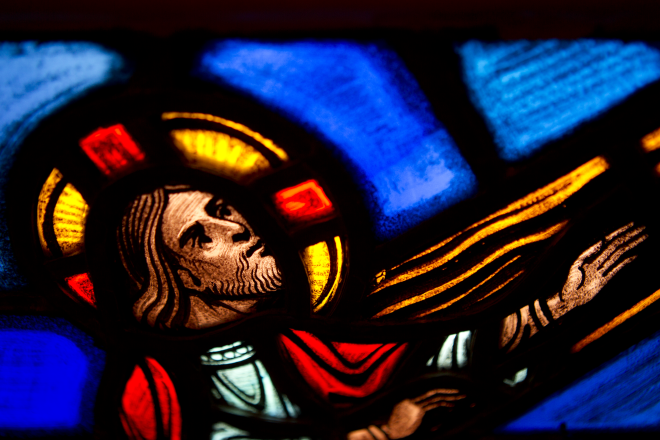The Son

On two questions the universal Church has definitive dogma, which is to say, it has defined two questions ‘everywhere, at all times, and by all’ (called the ‘Vincentian Canon’). They really answer the same question, ‘who is Jesus Christ?’ though one answers it with respect to the doctrine of God itself, and the other by a more narrow angle, with respect to His person. The definitions go like this: God Himself is one God in three persons, the Son eternally ‘begotten’ that is, related to his Father in God Himself. The second definition is that Jesus Christ is one person, one agent of thought and action, who is both the Second Person of the Trinity and the man Jesus. In neither case can you think of parts or division, but rather of distinction. We know both to be true, though how they are so exceeds our understanding.
While it is no substitute for the traditional answers the Church has offered, the fondness of our era for the idea of story, of narrative, as a way to describe who someone is, can help us here. Take the Bible as the human story from its origins in eternity to its conclusion there as well. Now think of that story as on one hand the story of God, in Himself and in relation to His world. Consider John 1, as the key to this expansive story: ‘in the beginning was the Word, and the Word was with God, and the Word was God…’ This story, of God’s love for the world, of His prophetic Word, finds its perfection and its climax in the birth, life, death, and resurrection of Jesus. God sovereign, but also intimately involved. But the Bible is also the story of the human beings as the crown, and also the tragedy, of God’s creative work. The human obedient to God, the human faithful and self-giving in love - this may finally be seen in Jesus Christ.
The narrative of God Himself, and with His world, and the narrative of the human being in response to Him- both converge in one person Jesus Christ. His one story is may be read in both of these ways.
Read the Athanasian Creed. How does it tell us who Jesus is and who Jesus isn’t.



